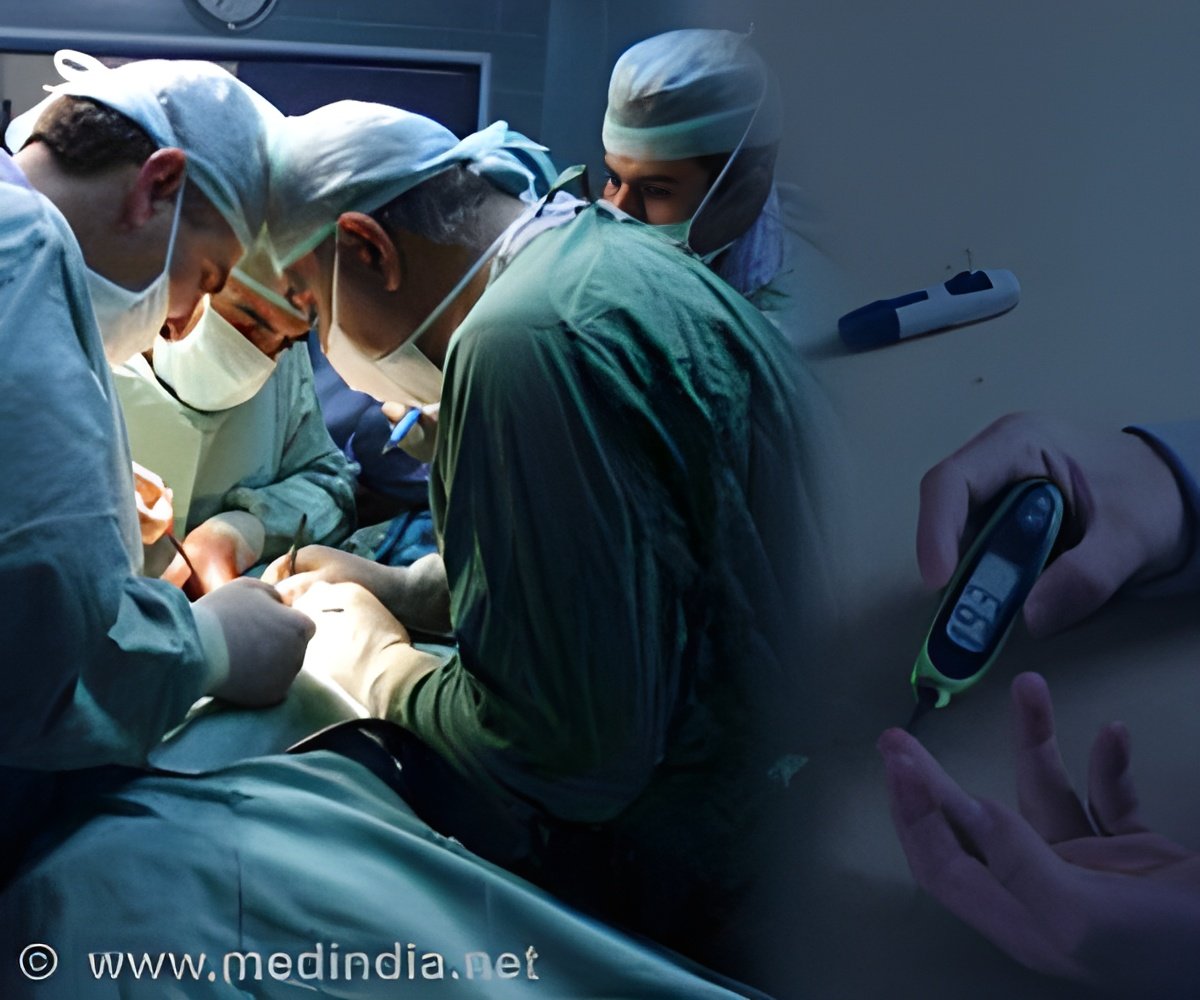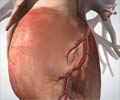A study found that patients who underwent heart bypass surgery without a heart- lung machine did as well as patients whose hearts were connected to a pump during surgery.

For the primary endpoint of patients' composite outcomes of death, stroke, heart attack or new kidney failure requiring dialysis within one year of surgery, researchers found no significant difference between patients receiving the off-pump and on-pump procedures (12.2 vs. 13.3 percent, p = 0.24.) The study previously looked at this primary endpoint for patients at 30 days and also found the two methods to be statistically neutral in the short-term, but conflicting results from other research studies raised uncertainty about patients' intermediate (one year post-surgery) and long-term outcomes.
"We found that both on-pump and off-pump bypass have similar results, even at one year," said Andre Lamy, MD, lead author of the CORONARY study and professor in the division of cardiac surgery at McMaster University in Ontario. "Both surgical approaches are effective when provided by experienced surgeons."
Coronary artery bypass graft surgery (CABG) is one of the most commonly performed operations in the U.S. and the world and consumes more resources in cardiovascular medicine than any other procedure. In on-pump CABG, the patient's heart is stopped and blood is circulated through a heart-lung machine, where it is oxygenated and returned to the patient. In the off-pump technique, the surgeon uses a retractor to lift the still-beating heart and perform all coronary artery grafts. Off-pump CABG eliminates the need to insert a tube called a cannula into the aorta (the main artery distributing blood to the brain and body), cross-clamp the aorta, connect the patient to the heart-lung machine and stop and restart the heart.
The CORONARY study included patients from 79 centers in 19 countries who were scheduled to undergo CABG. Participants were randomly assigned to receive on-pump or off-pump CABG after a complete assessment to ensure they were appropriate for both techniques. In addition to the primary endpoint, researchers looked at the need for coronary revascularization between groups. This entails restoring blood flow to the heart through a repeat CABG or placement of a stent and indicates the initial CABG procedure was not successful. Again, results were similar between groups with 1.4 percent of patients in the off-pump group and 0.8 percent of patients in the on-pump group requiring this additional procedure.
The study also assessed the neurocognitive function and quality of life of patients in each group through the use of standardized scales.
Advertisement
According to Dr. Lamy, this transient difference in patients' neurocognitive functions came as a surprise to researchers, as smaller studies have shown evidence of short-term neurocognitive declines among patients receiving both types of bypass. Researchers found patients' quality of life to be similar after both on- and off-pump bypass.
Advertisement
"Compared to the other trial, our patients were older and sicker, and our surgeons were more experienced, particularly in performing off-pump bypass," he said.
Off-pump bypass requires a higher degree of surgical expertise since the operation occurs while the patient's heart is still beating. Thus, surgical expertise is a key factor affecting patient outcomes, and it is possible that other studies have not controlled for this, Dr. Lamy said.
All surgeons participating in the CORONARY study were required to have performed a minimum of 100 cases in the approach used, though the vast majority of surgeons in their study were highly experienced in both types of procedure, Dr. Lamy said.
"The CORONARY study shows that off-pump bypass is just as good as on-pump. Therefore, surgeons should tailor their surgical approach to their technical expertise and expected technical difficulty," Dr. Lamy said.
The CORONARY study will follow patients for five years. Researchers hope this continued evaluation will provide needed evidence about the success of on- and off-pump bypass beyond the first year.
Source-Eurekalert








